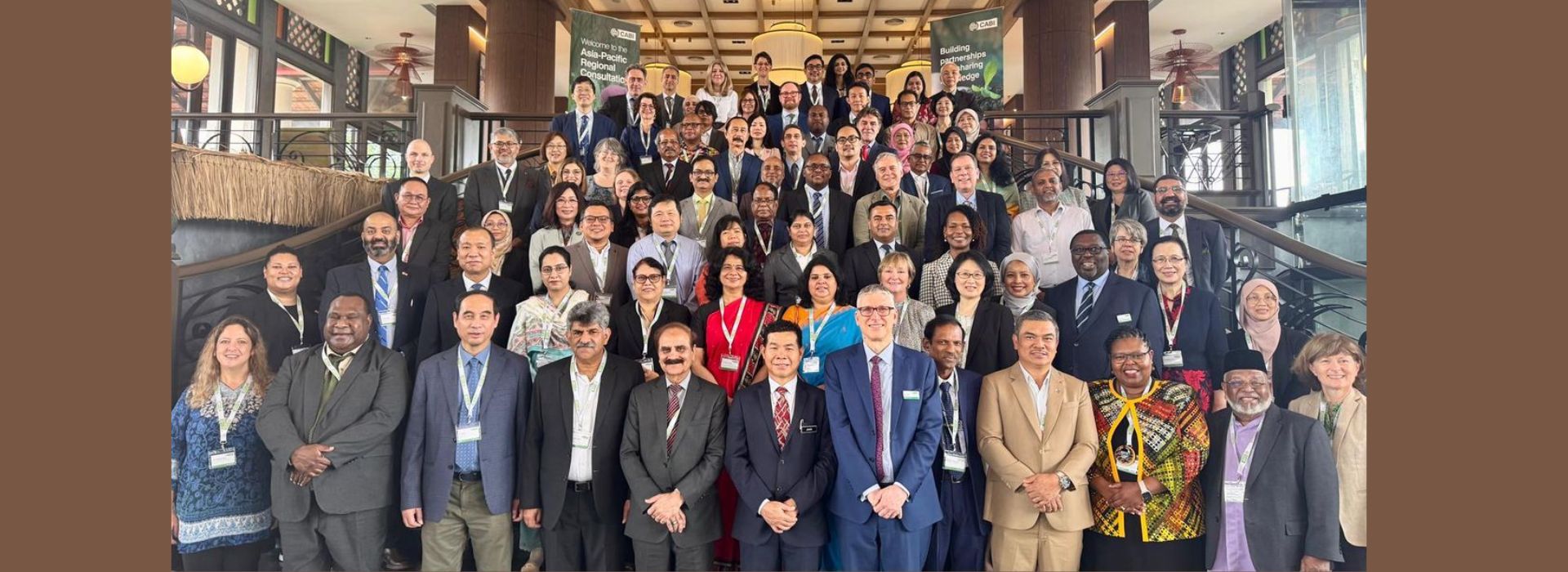The Director General of the International Coconut Community (ICC) participated in the CABI Regional Consultative Meeting held in Putrajaya, Malaysia. The meeting gathered around 100 delegates from CABI Member Countries, international partners, and agricultural experts to align CABI’s efforts with national and regional priorities, develop collaborative frameworks, and ensure effective funding and implementation of key agricultural programs.
The event was officially opened by Dr. Daniel Elger, CEO of CABI, and Mr. Johari Bin Abdullah, Deputy Director General, Department of Agriculture, who represented Malaysia’s Ministry of Agriculture and Food Security (KPKM). Discussions were led by Dr. Ulrich Kuhlman, Executive Director, Global Operations, CABI, featuring a series of presentations and workshops addressing regional agricultural challenges and solutions.

As part of the meeting, the Director General of ICC was invited to speak in a session focusing on the challenges and opportunities in implementing pesticide risk reduction practices. The session highlighted the urgent need to reduce pesticide overuse, which poses risks to human health, the environment, and biodiversity. Excessive reliance on chemical pesticides in agriculture has led to issues such as pesticide resistance, soil degradation, water contamination, and threats to pollinators like bees.
During the session, the Director General introduced ICC’s key programs, which align with global efforts to promote sustainable agriculture and capacity-building:
- Eco-friendly Pest Management Initiatives – Encouraging integrated pest management (IPM) strategies as an alternative to excessive pesticide use, promoting environmentally responsible coconut farming.
- Youth Empowerment Program – Engaging and equipping young professionals with the skills and knowledge needed to contribute to the coconut industry’s growth and innovation.
- International Training Course for Coconut Development Officers – A capacity-building initiative designed to enhance technical expertise, knowledge-sharing, and leadership development among coconut sector stakeholders worldwide.
In addition, Dr. Jelfina Alouw, ICC Director General, presented key findings on major pests and diseases affecting the coconut sector, emphasizing the urgent need for collaboration to manage these threats and protect smallholder farmers, who account for over 95% of the coconut industry. She highlighted ICC’s active role in advancing IPM strategies, including the development of guidelines, books, and an online portal for pest identification and management. Notably, CABI has developed the “Cocopest” information portal, which serves as a valuable tool for coconut farmers and stakeholders.

The CABI Regional Consultative Meeting provided an excellent platform for ICC to strengthen partnerships, exchange knowledge, and contribute to discussions on sustainable pest management, capacity building, and youth engagement. By addressing pesticide risk reduction and promoting eco-friendly solutions, ICC reinforces its commitment to ensuring a resilient and sustainable coconut industry that supports farmers’ livelihoods and environmental conservation.

